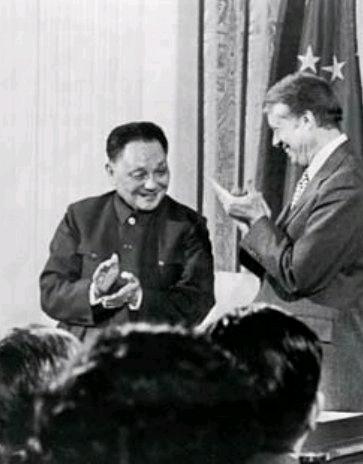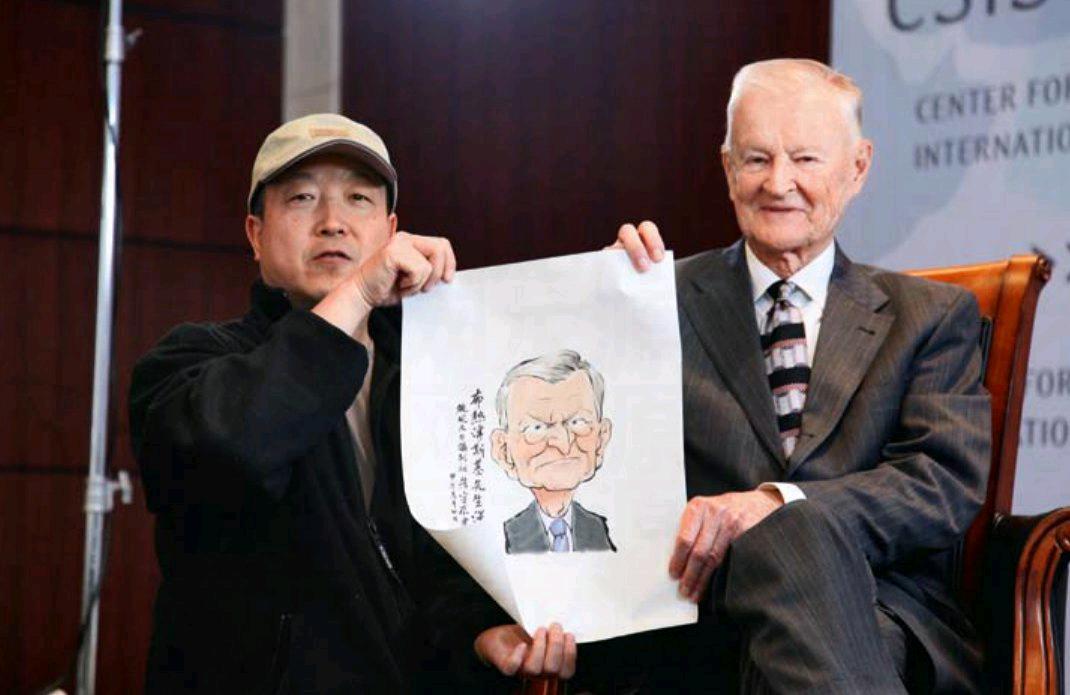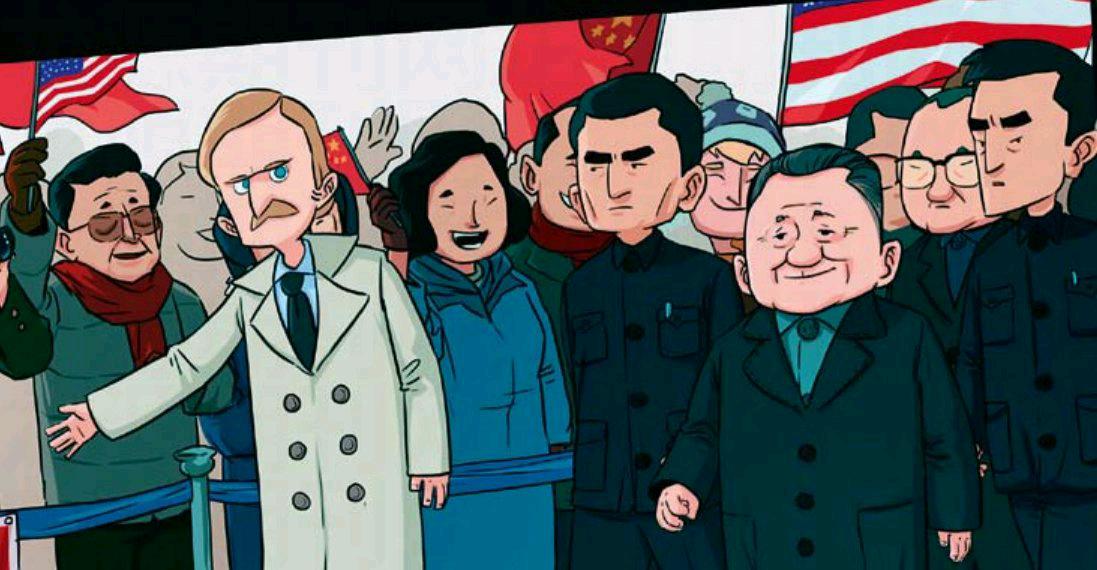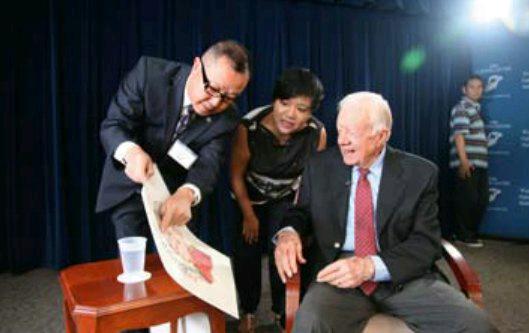Revisiting Deng’s U.S.Visit
2015-06-16byGongHaiying
by+Gong+Haiying
On May 12, 2015, a biopic about Deng Xiaoping, dubbed“chief architect” of Chinas reform and opening-up, and his U.S. visit during his tenure as vicepremier of Chinas State Council premiered in Beijing. Three days later, the documentary, Mr. Deng Goes to Washington, officially hit Chinese theaters, the same day as Hollywood blockbuster Avengers: Age of Ultron, which took in US$631 million globally in three days.
Avengers is a film about American superheroes, while Deng is a “superhero”with remarkable contributions to Chinas modern history.
The documentarys producers purposely chose that day to debut their film.“The two films are related,” declares Fu Hongxing, director of Mr. Deng Goes to Washington. “Without Dengs historic nine-day visit to the United States, it would be impossible for us to watch American films in Chinese cinemas.”
Unearthing Hidden History
On January 28, 1979, just 27 days after China and the United States officially established diplomatic relations, then Chinese Vice-Premier Deng kicked off a nine-day visit to the United States after an invitation from U.S. President Jimmy Carter.
During the nine days, Deng visited four cities including Washington D.C., Atlanta, Houston, and Seattle, attended 80 diplomatic events and over 20 receptions, gave more than 20 speeches, and held at least 10 meetings with journalists. He even encountered protesters and two assassination attempts. American media commented that the historic visit stirred up a “Deng storm” in the country.
Ezra F. Vogel, a professor at Harvard University and an expert in China studies, wrote in his book Deng Xiaoping and the Transformation of China that modernization swept across China like a “prairie fire,” which can be credited to many single sparks. Dengs visit to the United States was the most important and blazing flame.
The historic nine-day visit put an end to the diplomatic standoff between China and the United States, and the two sides signed cooperative agreements concerning various realms such as technology, culture, education, and agriculture. “It marked a
significant turning point,” remarks Director Fu, “not only because it laid the foundation for China-U.S. relations, but also because the nine days changed the global political landscape.”
At first, Fu wanted to make a biopic about former U.S. President Jimmy Carter. It was during his term that China and the United States officially established diplomatic relations. While searching for footage of Carters relationship with China, Fu realized that Dengs visit was plenty for a wonderful film.
Because Fu wanted to shed light on a hidden history with Mr. Deng Goes to Washington, he included footage of protesters and the attempted assassinations.“All of the footage and materials, including dialogues, come from interviews or historical archives,” declares Fu. “Many of them are based on diplomatic documents from the U.S. Department of State.” Those archives are accessible on U.S. websites, but had never before been unveiled to the public in China.
Much of the historical footage used in the documentary was purchased from U.S. television networks and individuals, with the highest price topping US$250 per second. “Some footage stored by American institutions had never been seen by experts researching Deng,” Fu adds.
The documentary crew spent two years touring places Deng visited 36 years earlier and interviewing those involved, including former U.S. Secretary of State Henry Kissinger, former U.S. President Jimmy Carter, and his national security adviser
Zbigniew Brzezinski. U.S. security officers, as well as Sun Yong and Zhang Baozhong, both Dengs security guards at that time, also recounted the thrilling stories about how they protected Deng from the assas- sinations. Most of the key players are now in advanced age, so filming them preserved history.
The interview with Kissinger was particularly difficult to schedule. In 2013, when the crew contacted him for the first time, Kissinger agreed to give only 20 minutes for the interview because he was busy writing a book. Fu replied that he would rather wait until he finished his writing project so that they could have more time for the interview. However, one day before the interview, Kissinger, at 90, fell ill and was hospitalized. The crew waited. Finally, in December 2013, he was ready to give the interview.
True Stories
Deng was often described as a political leader in previous films. In the documentary, another side is revealed: an ordinary person. He smiles calmly when facing opposition, makes witty replies to difficult questions from journalists, glows like an innocent child in a simulated spacecraft, and gently kisses American children after a performance. Such details highlight Dengs personal charm.
The documentary also includes interviews with two American women who performed in a rodeo during Dengs trip to Houston. They were young girls at the time.“I realized that Deng left the image of an ordinary Chinese person in their memories,”Fu recalled the moment when they recounted the past. At that moment, the China-U.S. relationship was no longer cold, but something sensible and warm.
This point was exactly what Fu wanted to express through the documentary. In his opinion, todays China-U.S. relations are complex, powerful, and warm.
Fu hoped to tell a good, interesting story with the documentary. He used animation to portray plot points that lack historical footage. The animation integrates styles of traditional Chinese shadow puppetry with American and Japanese cartoons. Mr. Deng Goes to Washington is the first film to portray a Chinese leader with animation.
Zi Zhongyun, a retired researcher from the Institute of America Studies under the Chinese Academy of Social Sciences, commented that the documentary illuminates Dengs heritage. His paramount legacy is Chinas reform and opening-up, of which the establishment of China-U.S. diplomatic relations was key.
As a documentarian, Fu excels at producing films about great politicians and historic events. In 1998, his Zhou Enlais Diplomatic Career earned 40.3 million yuan, becoming the highest-grossing documentary that year. The film also won the Prize for Best Documentary at the 18th Golden Rooster Awards.
In September 2013, Fu resigned as curator of the China Film Archive to make the documentary Mr. Deng Goes to Washington. To receive approval, the documentary was modified seven times over the course of more than six months.
According to Lu Muzi, producer of Mr. Deng Goes to Washington, all of the documentarys investors and distributors were Chinese private film studios. Due to a lack of funds, its premiere schedule was delayed. Initially, the documentary was planned to hit theaters on August 22, 2014, the 110th birthday of Deng Xiaoping.
Mr. Deng Goes to Washington will receive a U.S. release. According to Fu, he will edit the film again for the palates of American audiences. He hopes it will encourage Americans interested in Chinas development and Sino-American relations to support Chinas reform and opening-up and the development of the bilateral rela- tions between the two countries. Will the documentary sweep across the United States like the “Deng storm” did three decades ago?